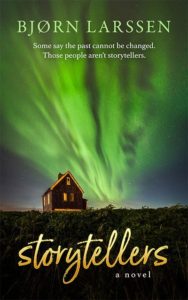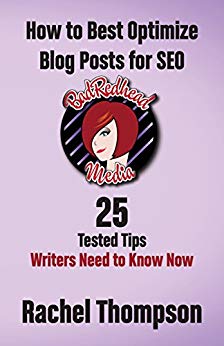 This is the fourth instalment of the series on blogging that Ruth Feiertag asked me to write late last year. Scroll to the bottom of this post to read about how to begin a blog, how to brainstorm ideas for it, and where to find visual images that won’t violate any copyright laws.
This is the fourth instalment of the series on blogging that Ruth Feiertag asked me to write late last year. Scroll to the bottom of this post to read about how to begin a blog, how to brainstorm ideas for it, and where to find visual images that won’t violate any copyright laws.
Now that you’ve gotten your site set up and have some posts published on it, how do you find readers?
Today I’m going to be discussing some strategies for attracting new those readers, connecting with likeminded fellow bloggers, and getting the word out about your site that I’ve found useful.
It all begins with how you behave online and what kind of reputation you’ve built up. The Internet can feel like an anonymous and impossibly large place sometimes, but it’s been my experience that word can travel very quickly about how someone behaves on it. Anything you write or share as an update could go viral at a moment’s notice, so be mindful of that when you’re deciding how to present yourself online just like you do in real life.
Play the Long Game
None of the tips I’m sharing today are going to turn you into a fabulously wealthy, world-renown blogger or writer overnight. It takes time and effort to build up a loyal following, and no one is guaranteed success in three easy steps or anything like that. Just like many other things in life, there is no shortcut here. Anyone who tells you otherwise may very well be trying to sell you something.
Be Generous
No matter what strategies you decide to use to hopefully attract new readers to your site, be generous with your time and attention when you stumble across things that resonate with you.
For example, if I read a blog post that I really love, I’m going to leave a comment on it telling the blogger how much I appreciated that post if their site allows comments. I will probably tweet or retweet it, and I might even send links to it to a few friends or relatives who are interested in the topic it discusses if they’re not on Twitter.
Not every post I like receives all of these different types of attention, of course, but I do regularly promote the things that bring me joy without any expectation of reciprocation.
In my experience, people can tell the difference between you sharing something because you feel obligated to update your feed X number of times a day (and are hoping to get similar signal boosts from others yourself) and you sharing something that you genuinely loved without attaching any strings to it.
Be the second kind of person online. Speaking of social media…
Social Media
 No, you don’t have simultaneously maintain Facebook, Twitter, Snapchat, Pinterest, Youtube, Tumblr, Reddit, and Instagram accounts. The thought of that is exhausting!
No, you don’t have simultaneously maintain Facebook, Twitter, Snapchat, Pinterest, Youtube, Tumblr, Reddit, and Instagram accounts. The thought of that is exhausting!
Pick one or two of them instead, and focus on getting to know those sites as well as possible. Ideally, they should be places where you and people you know already spend time.
The culture of a (generally) anonymous, teen and twenty-something site like Reddit is completely different from somewhere like Facebook where the audience tends to be older and everyone is expected to use their real name. I can’t tell you which social media site(s) to choose. So much depends on what you’re writing about and where your audience is located.
What I can tell you is that Twitter is what works best for me. The hashtags on that site make it easy to connect with potential friends who are also into underwater basket weaving (or whatever your passions are in life), and I enjoy the fast-paced conversations that happen there.
Once you’ve chosen a site or two to follow, begin sharing updates about your life. I like to see at least two-thirds of the tweets I read from any given account be non-promotional in nature. That is, don’t endlessly tweet links to your website, book, or product. Instead:
- Tell a funny story about something that happened to you recently
- Ask a thought-provoking question and discuss it with anyone who responds
- Reply to other people’s status updates
- Share a quote, picture, or meme
- Talk about something you’re struggling with (or doing well at)
In short, treat social media like a dinner party, not a sales pitch. Of course you can and should occasionally share links to your site, but those updates should be the garnish instead of the main course. I generally tend to mute or unfollow people whose accounts feel like never-ending advertisements.
How Often to Tweet
Some of the people I follow on Twitter post new tweets multiple times an hour from morning to night. Others might pop in once a week, once a month, or less.
In general, I think it’s best to tweet at least one new, non-promotional thing every day if you can. For example, your tweets for a week might look something like this:
- Monday: Post a link to your new blog post for #MondayBlogs* and retweet other participants, too.
- Tuesday: Ask your followers an open-ended question and reply to their responses.
- Wednesday: Tell an amusing story about your dog running around in the backyard and trying to catch falling snowflakes during that big snowstorm last night. You’ll get bonus points from all of the animal lovers if you include a picture, too!
- Thursday: Share a thought-provoking quote.
- Friday: Talk about one of your hobbies or interests, especially if it’s somehow related to your blog’s subject matter.
- Saturday: Grab a post from your archives and share it on #ArchiveDay.*
- Sunday: Start a conversation with your followers about how everyone’s weekends went. Did you or they do anything interesting during it?
*I’ll talk more about these hashtags in the next section of this post.
Any retweets you want to share can be interspersed between these snapshots of your everyday life.
This doesn’t mean that you should spend twelve hours a day on social media. I know many people who set strict limits on how long they spend on Twitter and similar sites. After their 10 or 15 (or fill-in-the-blank) minutes are up for social media time, they close those windows or apps and get back to writing and other work.
One of the downsides of social media is that individual tweets tend to only attract an audience for a short period of time. By tweeting and retweeting regularly, you’ll begin to build rapport with the other people you meet there as they see you pop up over and over again on their timelines.
How to find new people to follow on Twitter might be worthy of its own post, so I won’t say anything else about it today.
Recurring Hashtags to Follow
Some of the hashtags I use are meant to be tweeted only on specific days of the week. If you’re able to spend a bit more time on Twitter sometimes, I’d recommend checking out one or more of the following hashtags.
#MondayBlogs
Rachel Thompson created this hashtag in 2012. Use this hashtag to share links to your blog posts on Mondays. You can use a current post or something from your archives, just don’t share anything that is pornographic or a promotion for your books. Be sure to retweet other participants as well! Click on the link above for more information about this hashtag and the woman who came up with it.
#ArchiveDay
I believe that #ArchiveDay was originally created in late 2010 or early 2011 by Rosh Sillars so that he and other bloggers could share links from their archives and attract new readers. It wasn’t associated with any particular day in the beginning so far as I’ve been able to determine, but for the past few years it has become a Saturday tradition for many of us. This is the least well-known hashtag I’m sharing today, but I love the idea of digging through your old posts and introducing them to new audiences. I hope it will become more popular in the future.
#SundayBlogShare
This hashtag was created in 2014 by Suzie81. As of April 2018, she is no longer participating in it, but I still see people using it to share old and new posts every Sunday. To the best of my knowledge, any posts that don’t include pornographic content are welcomed to be tagged with this hashtag.
If you only have time for one of these events, I’d recommend going with #MondayBlogs due to it’s large, active, and diverse population. Definitely don’t feel obliged to participate in all three of these hashtags every week unless you truly want to.
Leave Relevant Comments on Other Sites (and Allow Comments on Your Own)
 Let’s say that last week you wrote a post about how to keep sharks from getting tangled up in your underwater basket weaving supplies. Today you noticed someone on Twitter sharing a post on their struggles with the same problem. You love their writing style and really want to connect with them.
Let’s say that last week you wrote a post about how to keep sharks from getting tangled up in your underwater basket weaving supplies. Today you noticed someone on Twitter sharing a post on their struggles with the same problem. You love their writing style and really want to connect with them.
This is the perfect opportunity to comment on their post to discuss what worked for you and, if their comment system allows for it, share a link to your post on the topic.
Relevant is the key word here. I definitely don’t share links to my blog posts in the body of every single comment I leave. In fact, most of the time my responses have nothing at all to do with what’s on my site and everything to do with reacting to whatever it is the other person is blogging about that day.
Many bloggers appreciate comments, especially when they know that you’re genuinely interested in who they are and what they’re talking about. If they’re interested in learning more about who you are, they’ll click on the website link that’s included in most commenting systems.
By allowing comments on your site, you’ll give your readers a chance to do the same for you.
Linkup Parties
A Linkup Party is a special type of blog post that is created specifically for people to leave links to their sites in the bodies of their comments. Some of them have specific themes (e.g. share a link to something you wrote on the topic of history, or it might be a linkup for LGBT+ bloggers only). Others are open to all participants.
Generally, the host will ask you to give a brief summary of your site, share a link to a post, and then visit other posts in the comment section of that post. Be sure to follow any additional instructions they give you and check out the other sites, too. You might find some that are right up your alley!
Blog Hops
 Finally, we come to blog hops. A blog hop is a weekly prompt that a group of bloggers all write posts about. The site that created the blog hop will provide a space for you to share a link to your response and click on links to the responses of other participants as well.
Finally, we come to blog hops. A blog hop is a weekly prompt that a group of bloggers all write posts about. The site that created the blog hop will provide a space for you to share a link to your response and click on links to the responses of other participants as well.
If you can think of a topic, there is almost certainly a blog hop for it somewhere. That directory I just linked to is just one of many out there.
Top Ten Tuesday and the Wednesday Weekly Blogging Challenge are the two I participate it. They’ve brought quite a few new readers to my site over the last month or so since I first began doing them.
How many of these strategies have you tried? Ruth and anyone else who would like to chime in, what other questions do you have about blogging?
Additional reading:
15 Things I’ve Learned From 15 Years of Blogging
Blogging Advice: How to Begin Blogging
Blogging Advice: Brainstorming and Idea Management
Blogging Advice: Finding and Using Visual Images for Your Site

 Social media is like water. Context matters.
Social media is like water. Context matters.
 Why is it important to develop a social media calendar? Well, there are a few reasons why this is a good idea.
Why is it important to develop a social media calendar? Well, there are a few reasons why this is a good idea. A little before lunchtime, I share something like a quote, link to an interesting news article, or photo.
A little before lunchtime, I share something like a quote, link to an interesting news article, or photo. Tip #5: Keep a File of Ideas
Tip #5: Keep a File of Ideas Tip #7: Engage with Your Followers
Tip #7: Engage with Your Followers
 I’m going to perform a magic trick today and give Internet access and knowledge of how to use it to the characters on this list who didn’t actually live in times and places where social media, much less the Internet itself, existed.
I’m going to perform a magic trick today and give Internet access and knowledge of how to use it to the characters on this list who didn’t actually live in times and places where social media, much less the Internet itself, existed. I started blogging back in the early 2000s when most of the bloggers I knew used Blogspot. One of the things I miss the most from that era are response posts.
I started blogging back in the early 2000s when most of the bloggers I knew used Blogspot. One of the things I miss the most from that era are response posts.
 There are many things I appreciate about social media, but it’s hard to fit complex ideas or discussions into a few 280-character tweets. The beautiful thing about the blogosphere is how much more room there is in a blog post to add subtley to your point of view.
There are many things I appreciate about social media, but it’s hard to fit complex ideas or discussions into a few 280-character tweets. The beautiful thing about the blogosphere is how much more room there is in a blog post to add subtley to your point of view.






 This is the fourth instalment of the series on blogging that
This is the fourth instalment of the series on blogging that  No, you don’t have simultaneously maintain Facebook, Twitter, Snapchat, Pinterest, Youtube, Tumblr, Reddit, and Instagram accounts. The thought of that is exhausting!
No, you don’t have simultaneously maintain Facebook, Twitter, Snapchat, Pinterest, Youtube, Tumblr, Reddit, and Instagram accounts. The thought of that is exhausting! Let’s say that last week you wrote a post about how to keep sharks from getting tangled up in your underwater basket weaving supplies. Today you noticed someone on Twitter sharing a post on their struggles with the same problem. You love their writing style and really want to connect with them.
Let’s say that last week you wrote a post about how to keep sharks from getting tangled up in your underwater basket weaving supplies. Today you noticed someone on Twitter sharing a post on their struggles with the same problem. You love their writing style and really want to connect with them. Finally, we come to blog hops. A blog hop is a weekly prompt that a group of bloggers all write posts about. The site that created the blog hop will provide a space for you to share a link to your response and click on links to the responses of other participants as well.
Finally, we come to blog hops. A blog hop is a weekly prompt that a group of bloggers all write posts about. The site that created the blog hop will provide a space for you to share a link to your response and click on links to the responses of other participants as well. There have been references to the argumentative nature of the Internet for as long as I’ve been aware of such a thing, much less an active participant in it.
There have been references to the argumentative nature of the Internet for as long as I’ve been aware of such a thing, much less an active participant in it. At any rate, this pattern of behaviour carried over to social media as soon as such a thing existed. It’s shown no sign of of stopping since then.
At any rate, this pattern of behaviour carried over to social media as soon as such a thing existed. It’s shown no sign of of stopping since then. There’s something liberating about choosing not respond to everyone who wants to debate. The Bernards of the world obviously have the freedom to rant about cats and dogs as much as they wish, but they’ll soon learn that I’m not someone who will jump into fruitless arguments with them.
There’s something liberating about choosing not respond to everyone who wants to debate. The Bernards of the world obviously have the freedom to rant about cats and dogs as much as they wish, but they’ll soon learn that I’m not someone who will jump into fruitless arguments with them. Some of my friends who are also interested in mindfulness have reduced their time spent on social media because of this. Honestly, I don’t blame them. I’ve cut back certain aspects of my social media usage, too. The gap between what these sites could be and what they actually are is simply too big to ignore in certain cases.
Some of my friends who are also interested in mindfulness have reduced their time spent on social media because of this. Honestly, I don’t blame them. I’ve cut back certain aspects of my social media usage, too. The gap between what these sites could be and what they actually are is simply too big to ignore in certain cases. Sometimes saying no to certain hashtags, websites, groups, or users is the best possible response to something that is such contradictory mixture of helpful and harmful content.
Sometimes saying no to certain hashtags, websites, groups, or users is the best possible response to something that is such contradictory mixture of helpful and harmful content.
 Those of you who have been following me for years might remember my post from 2014 about
Those of you who have been following me for years might remember my post from 2014 about 